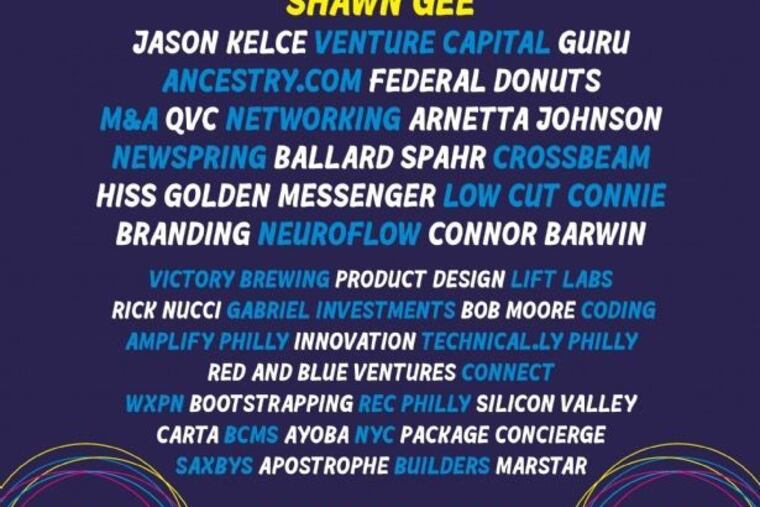Ballard Spahr’s WhatsNext virtual conference aims to change the way entrepreneurs network online
This virtual conference is designed to feel like a music festival. The interactive webinars for emerging growth companies and investors will be interspersed with short performances from bands like Low Cut Connie, and dough-making lessons from Federal Donuts.

Virtual meet-ups shouldn’t be boring.
That’s why Gregory Seltzer, a partner at Ballard Spahr, decided to launch WhatsNext — the inaugural virtual conference designed to feel like a music festival. The interactive webinars and chat-room sessions for emerging growth companies and investors will be interspersed with short performances from such bands as Hiss Golden Messenger and Low Cut Connie, dough-making lessons from Federal Donuts, and even a virtual beer-tasting session with Victory Brewing Co. (Attendees get a discount code for the firm’s Golden Monkey and Prima Pils and then get a link to order from.)
“We were able to infuse this virtual event and this business conference with much more talent and high-end experts than we would if this was an in-person event in Philly,” says Seltzer, who represents entrepreneurs, start-ups and emerging companies and is co-practice leader of the firm’s Emerging Growth and Venture Capital Group.
Registration for the June 24 conference is free for all attendees, and will be held on the online event platform Hopin. Nearly 500 people had signed up by late Tuesday afternoon. “It really levels the playing field for entrepreneurs to be able to access not only information, but access to CEOs and the investors,” said Seltzer.
Throughout the 11:30 a.m.-to-6 p.m. event, festival goers will have the choice to sit in on a series of panels covering topics ranging from product design to accounting advice. One mid-afternoon offering is titled “How to Make Dough: Literally…” while another is headlined “Onward and Upward & Instructions on How to be a Meaningful Citizen.”
There are multiple events scheduled for each time slot, too, so attendees can choose the panels most relevant to them. And in short sessions between events, entrepreneurs will have the chance to take a break with a musical performance or cooking lesson.
If an information session doesn’t interest an entrepreneur, Seltzer says, that person might normally network in the lobby or hang out by the bar at an in-person event. “What this platform allows you to do is if you just want to go meet some people, you go into the networking rooms.” These rooms pair up entrepreneurs with others at the festival who want to network, and allow them to have an isolated conversation where they can also exchange contact information.
Seltzer hopes that Hopin will also help make the festival’s webinars more interactive, and less a presentation to “a sea of boxes.” Ballard Spahr lawyers will act as moderators for the conversations, selecting audience questions for panelists from a live chat box. But unlike Zoom or other webinar platforms, Seltzer says, Hopin gives moderators the option to let audience members briefly join the panel and ask questions through a live video chat.
For an event such as this to be held in-person, Seltzer estimates it would cost about $50,000. But “we’ve spent a small fraction of that to put this on.” He didn’t have to cover travel costs for panelists from out of town, and most guest speakers, including Eagles center Jason Kelce and former Eagles linebacker Connor Barwin, were “happy to chip in and say yes to being a part of something that’s benefiting entrepreneurs and innovators.”
Guru Technologies is a local software company with representatives speaking at the festival. The firm’s director of product marketing, Steve Mayernick, said that virtual conferences afford business opportunities to a wider range of entrepreneurs. “While it’s more challenging to engage on a one-to-one basis than it is at a traditional event, it still serves a valuable purpose in connecting the best folks in the industry to share and learn.”
Because of that, Seltzer and the rest of his team at Ballard Spahr hope this festival can become a model for future virtual business conferences, even after the COVID-19 pandemic ends. Going virtual makes the festival more accessible to entrepreneurs across the country, and Hopin’s chat room functions let attendees talk to lawyers, CEOS, and investors in a private setting if they want to.
Seltzer plans to continue hosting WhatsNext annually, and might consider adding in-person components such as a watch party when it’s safe to do so. “But the content will remain fully virtual so that people don’t feel as though they’re not where the action is.”